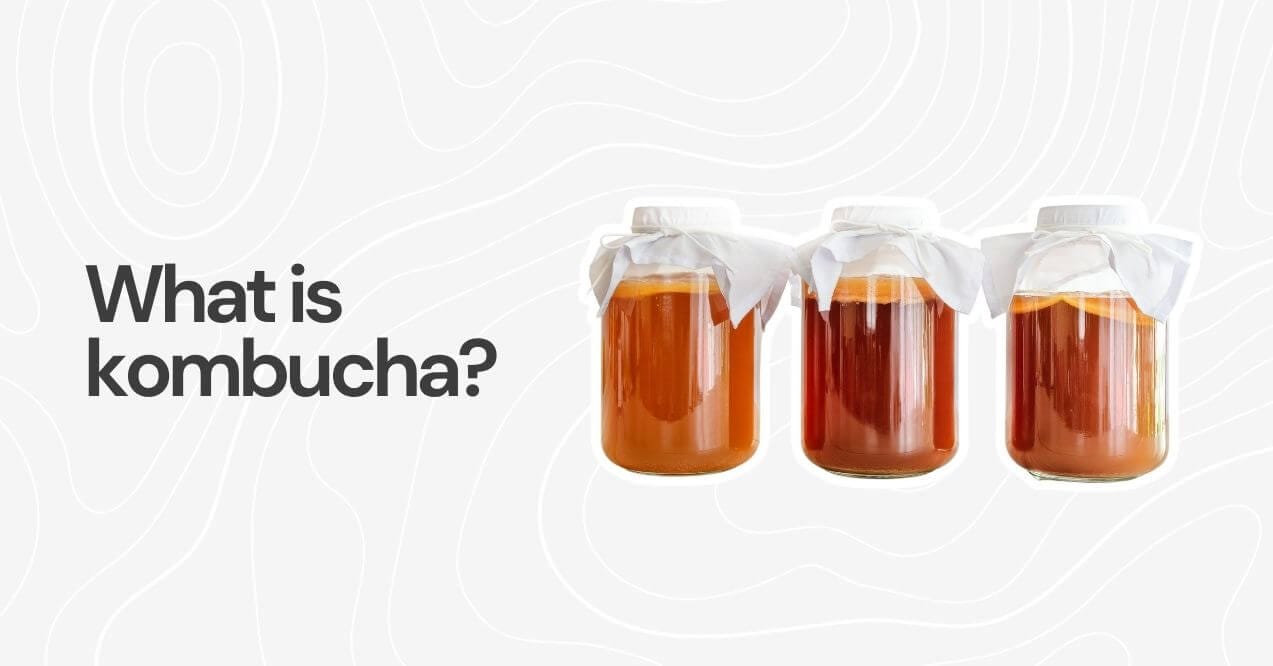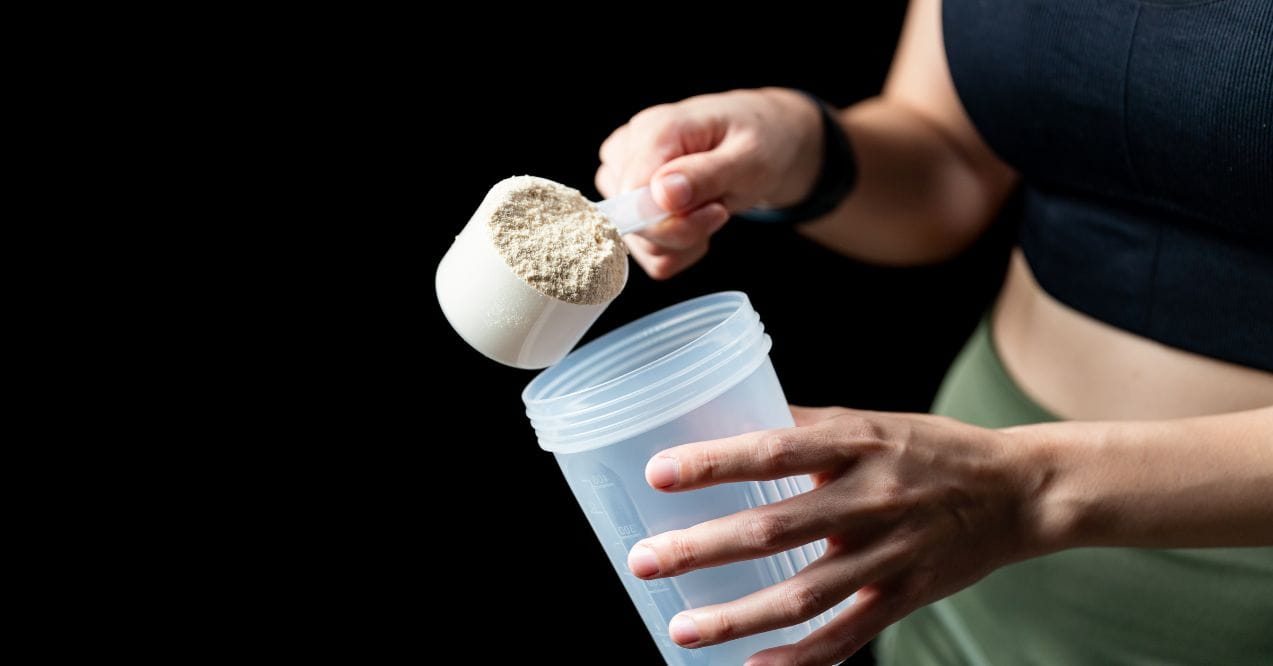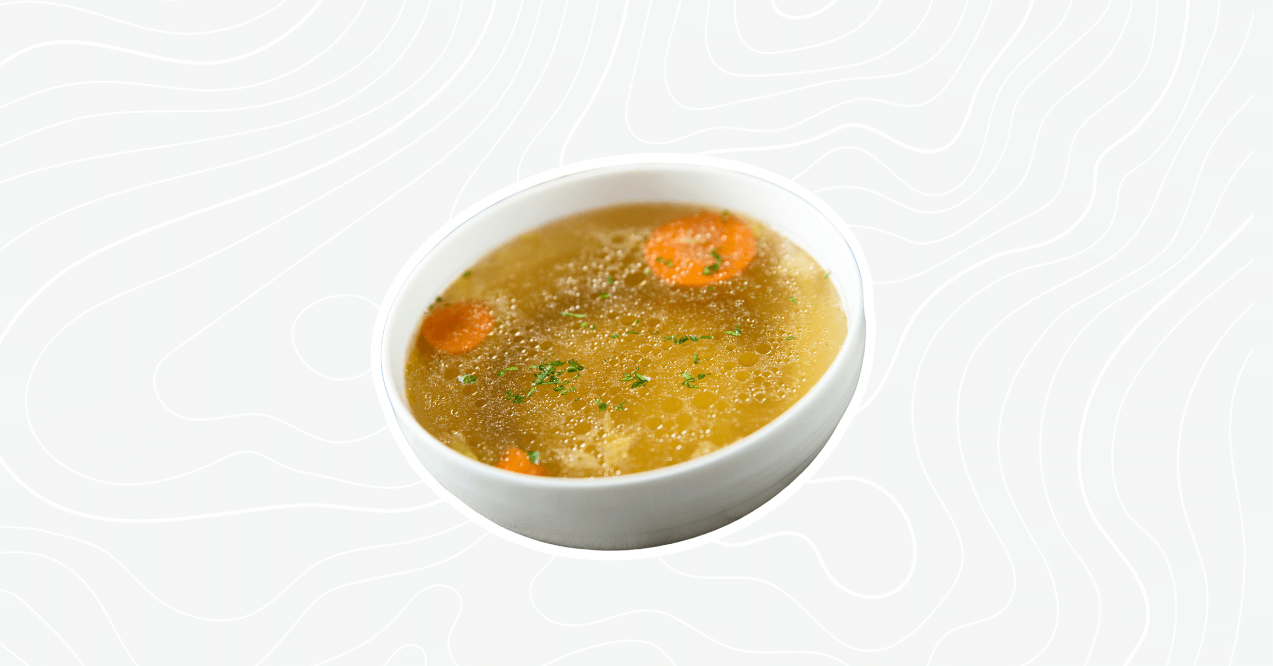Does Kombucha Help with Bloating? Discover Expert Opinions & Benefits
Does kombucha help with bloating? This intriguing question resonates with many who seek relief from digestive discomfort. In a world where gut health is increasingly recognized for its impact on overall wellbeing, kombucha, a traditional fermented tea, has emerged as a popular topic.
This fizzy beverage, steeped in history and rich in a mix of beneficial bacteria and yeast, is often celebrated for its purported health benefits, particularly in aiding digestion and reducing bloating. Alongside kombucha, incorporating superfood powders – packed with digestive-supporting nutrients and probiotics – can further enhance gut health and potentially reduce bloating.
In this article, we delve into the heart of the matter, exploring the intricate science behind kombucha’s potential to alleviate bloating. Understanding the causes of bloating, including questions like “can ovulation cause bloating“, and the role of gut microbiota provides a backdrop to appreciate how kombucha might influence our digestive system. If alcohol is contributing to your bloating, you might also be wondering how to get rid of bloating from alcohol? As we explore these connections, we also consider how integrating other gut-friendly practices, such as drinking the best tea for gut health, can complement the effects of kombucha, offering a broader approach to managing digestive health. For those looking to nourish their gut post-workout, incorporating a Smoothie Recipe for Muscle Recovery may also help support digestion while replenishing essential nutrients.
Key Article Findings:
What is Kombucha?

Kombucha is a fermented tea made from sweetened black or green tea. Its origins date back thousands of years, with roots in East Asia, particularly China, where it was prized for its potential health benefits.
The fermentation process starts when a SCOBY (Symbiotic Culture of Bacteria and Yeast) is added to the tea. Over days or weeks, the SCOBY feeds on the sugar, transforming the tea into a fizzy, slightly tangy drink. During this process, kombucha develops organic acids, enzymes, and probiotics, which are believed to support digestion and gut health.
Throughout its fermentation, kombucha develops a distinctive profile of beneficial compounds. These include:
- Acetic acid
- Glucuronic acid
- Gluconic acids
- Probiotics
- Vitamins
The result is a beverage that is not only refreshing but is also thought to support gut health, aid in digestion, and even bolster the immune system.

Does Kombucha Help With Bloating?

The answer isn’t straightforward – it depends on both kombucha’s unique properties and individual digestive health.
Kombucha is a fermented tea packed with probiotics, organic acids, and enzymes, all of which may support gut health. These components help balance the gut microbiome, which plays a key role in digestion and may reduce bloating for some people.
However, kombucha doesn’t work the same way for everyone. While some find relief from bloating due to its probiotics, others may experience temporary bloating because of its carbonation and natural acids.
So, can kombucha cause bloating? The answer varies. Factors like gut health, individual tolerance, and the specific type of kombucha all play a role. That’s why it’s important to listen to your body and introduce kombucha gradually. If bloating persists, consider consulting a healthcare professional to determine if kombucha is right for you.
Other Health Benefits of Kombucha

Kombucha, a fermented tea beverage, is associated with a variety of potential health benefits that extend beyond digestive wellness. This unique drink is made from either green or black tea and is fermented with a symbiotic culture of bacteria and yeast, leading to the creation of numerous bioactive compounds.
1. Reducing Stress
One of the key components of kombucha is its rich antioxidant content, primarily derived from its tea base. These antioxidants are believed to help combat oxidative stress in the body, a factor often linked to chronic diseases and aging. By potentially reducing oxidative stress, kombucha might contribute to overall vitality.
2. Improving Energy Levels
The presence of B-vitamins in kombucha is another aspect contributing to its potential health benefits. These vitamins play vital roles in various metabolic processes, including energy production, nerve function, and the synthesis of vital biological molecules. Regular consumption of kombucha could, therefore, potentially aid in enhancing energy levels and supporting overall metabolic health.
3. Balancing Microbial Environment
Acetic acid, produced during the fermentation process, is known for its antimicrobial properties. This might make kombucha a helpful beverage in terms of supporting a balanced microbial environment in the body, contributing to the maintenance of general health.
Furthermore, the best kombucha for bloating contains a variety of other compounds such as enzymes and amino acids, which might contribute to its overall health-promoting properties. These components could potentially aid in various bodily functions, although the specific impacts of these compounds are still a topic of research.
It’s important to recognize that while kombucha is associated with these potential health benefits, its effects may vary among individuals. The extent to which it contributes to health improvements is subject to ongoing research and personal experience. As part of a balanced diet, kombucha for bloating is often chosen by those looking to incorporate natural, potentially healthful products into their lifestyle.
Are There Other Natural Remedies for Bloating?

If you’re looking for natural ways to relieve bloating, you’ll find plenty of options beyond kombucha. From herbal teas and probiotic-rich foods to dietary adjustments and lifestyle changes, these remedies offer gentle ways to support digestive health.
1. Herbal Teas & Probiotic Foods
Eating and drinking slowly may reduce the intake of air, which is a common cause of bloating. Rapid eating or drinking may lead to swallowing excess air, leading to gas accumulation in the stomach. Some of the best natural remedies for bloating come from herbs and fermented foods that promote a healthy gut.
Herbal teas like peppermint, ginger, and chamomile are well-known for their ability to soothe digestion and reduce bloating. Probiotic foods such as yogurt, kefir, and sauerkraut support a balanced gut microbiome, which may help reduce bloating over time.
2. Dietary and Lifestyle Changes
To reduce bloating, certain dietary adjustments may be highly effective. These changes involve moderating or eliminating foods that are known to cause gas and discomfort in the digestive system.
- Eat & drink slowly – This helps reduce the amount of air swallowed, which can prevent gas buildup.
- Avoid carbonated drinks & beer – These beverages release carbon dioxide, which can cause bloating and discomfort.
- Skip gum & hard candies – These encourage air swallowing, which can lead to bloating.
- Check denture fit – Ill-fitting dentures can cause you to swallow excess air while eating.
- Take short walks after meals – Light activity helps move gas through the digestive system, easing bloating.
3. Dietary Adjustments to Reduce Bloating
Incorporating fiber-rich foods and maintaining adequate hydration are key strategies in reducing bloating and improving overall digestive health. Fiber plays a crucial role in digestion, and when combined with proper hydration, it might alleviate bloating.
Certain foods are more likely to cause bloating due to their complex sugars and fibers. Moderating these foods in your diet can help:
- Legumes (beans, peas, lentils) contain oligosaccharides, a type of sugar that can be hard to digest.
- Cruciferous vegetables (cabbage, broccoli, cauliflower, onions, mushrooms) contain complex sugars that may increase gas production.
Instead, opt for easier-to-digest vegetables and gradually increase fiber intake to help your gut adjust.
4. Increase Fiber & Hydration
Fiber is essential for digestion, but it needs to be paired with proper hydration to prevent bloating.
- Quinoa – A fiber-rich grain packed with essential amino acids that support gut health.
- Oatmeal – Contains soluble fiber, which supports bowel movements and reduces constipation-related bloating.
- Drink plenty of water – Staying hydrated softens stool and helps move food through the digestive tract efficiently.
5. Herbs & Spices That Aid Digestion
Incorporating natural herbs and spices into the diet may be an effective strategy for reducing bloating, thanks to their gas-suppressing and digestive-enhancing properties.
- Fennel – Helps relax the gastrointestinal tract, making it easier for gas to pass. Try chewing fennel seeds after meals or drinking fennel tea.
- Coriander – Soothes the stomach and helps prevent gas buildup.
- Caraway – Has carminative properties, meaning it helps prevent and expel gas.
- Ginger – Known for its anti-inflammatory properties, ginger can ease bloating and support digestion. Try fresh ginger, dried ginger, or ginger tea.
- Black pepper – Aids digestion by stimulating stomach acid production, which helps break down food more efficiently.
Interestingly, when considering other factors that contribute to bloating, one might ask: does ovulation cause bloating? Indeed, hormonal changes during the menstrual cycle, including ovulation, may lead to temporary bloating for some women, adding another layer to the complexities of managing digestive health.
Furthermore, dietary strategies, including fiber-rich foods and reduced sodium intake, are examined for their effectiveness in managing digestive well-being. This journey into natural remedies for bloating unveils a range of options for those seeking gentle and holistic approaches to digestive health. Also, if you are wondering how to get rid of bloating from alcohol, these tips might be helpful for you as well.
Superfood Powders

Incorporating superfood powders into one’s diet is an increasingly popular way to tackle issues like bloating, thanks to their concentration of beneficial nutrients. These powders often contain a blend of fruits, vegetables, herbs, and other plant-based ingredients, known for their digestive health benefits.
One noteworthy product in this category is the Trumeta Metabolic Greens. This particular blend is carefully formulated to support digestive health and may help in reducing bloating. Metabolic Greens is a rich mixture of various greens known for their high nutrient content and health benefits.
Ingredients like spirulina, barley grass, and wheatgrass, which are often found in superfood greens powders, are known for their detoxifying properties and support for metabolic processes. The inclusion of probiotics and digestive enzymes in such products may also support gut health, potentially easing the discomfort associated with bloating.
Organic superfood powders can be easily incorporated into daily routines, such as adding them to smoothies, juices, or even water. This makes them a convenient and efficient way to consume a concentrated dose of beneficial nutrients that support digestive health and may help in reducing bloating.
Potential Side Effects of Kombucha
While kombucha is enjoyed for its possible health benefits, it’s important to be aware of potential risks, especially for certain groups. Due to its acidity, caffeine content, alcohol presence, and live bacteria, kombucha may not be suitable for everyone.
1. Pregnancy Concerns
Pregnant women should exercise caution when consuming kombucha. This is because:
- Kombucha contains a small amount of alcohol, a natural byproduct of fermentation, which is generally not recommended during pregnancy.
- Many kombucha brews are unpasteurized, meaning they may contain bacteria that could pose a risk to the developing fetus.
2. Risks for People with Weakened Immune Systems
Individuals with compromised immune systems or gastrointestinal disorders should be careful with kombucha. While probiotics can be beneficial, the live bacteria in kombucha could cause complications for those with weakened immunity or digestive conditions.
3. Acidic Nature & Digestive Sensitivities
Kombucha is a naturally acidic beverage, which may not be suitable for people with:
- Acid reflux – The acidity could trigger or worsen symptoms.
- Stomach ulcers – Kombucha’s acidity might irritate the stomach lining.
4. Caffeine Sensitivity
Though kombucha generally contains low levels of caffeine, it may still affect individuals who are highly sensitive to caffeine or trying to limit their intake.
Key Takeaways
So, does kombucha help with bloating? The answer depends on the individual. While some people find relief due to its probiotics and digestive benefits, others may experience temporary bloating from its carbonation and acidity.
Made by fermenting sweetened tea with a SCOBY (symbiotic culture of bacteria and yeast), kombucha is a tangy, probiotic-rich drink that has gained popularity for its potential health benefits. It is also packed with antioxidants and B vitamins, which may help reduce oxidative stress and support metabolic health.
However, kombucha is not for everyone. Pregnant women and individuals with certain health conditions should exercise caution due to its natural alcohol content, acidity, caffeine levels, and unpasteurized nature.
Ultimately, kombucha can be a refreshing and gut-friendly addition to a balanced diet, but its effects vary from person to person. If you’re considering adding kombucha to your routine, start with small amounts and monitor how your body responds. As always, those with health concerns should consult a healthcare professional before making dietary changes.
Kombucha, a fermented tea, is celebrated for its probiotics, which may enhance gut health, and its antioxidants, potentially aiding in cellular protection and overall vitality. It also contains B-vitamins and organic acids, which might support metabolism and offer antimicrobial benefits, contributing to general well-being.
To alleviate bloating, try soothing herbal teas like ginger or peppermint, incorporate probiotic-rich foods like yogurt, and adjust your diet to include fiber-rich options. Engaging in light physical activity and ensuring adequate hydration may also significantly ease digestive discomfort and reduce bloating.
Advertisement. This site offers health, wellness, fitness and nutritional information and is designed for educational purposes only. You should not rely on this information as a substitute for, nor does it replace, professional medical advice, diagnosis, or treatment. If you have any concerns or questions about your health, you should always consult with a physician or other health-care professional. Do not disregard, avoid or delay obtaining medical or health related advice from your health-care professional because of something you may have read on this site. The use of any information provided on this site is solely at your own risk.







